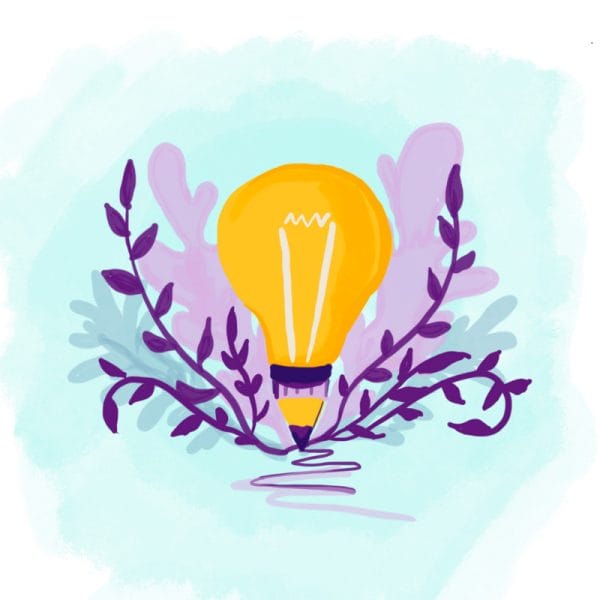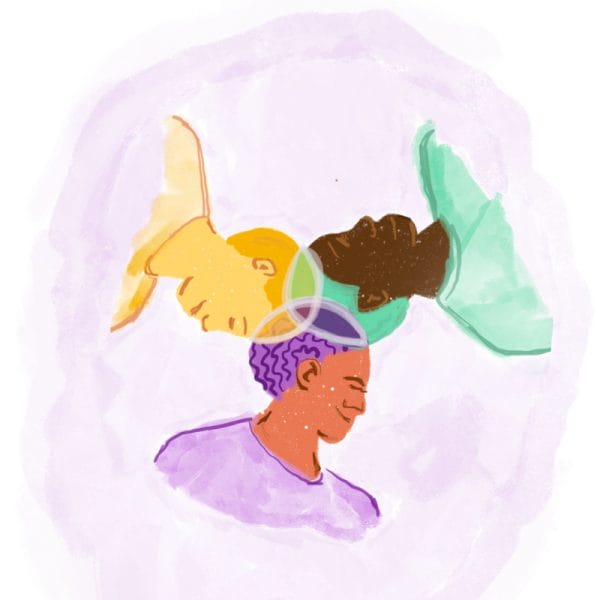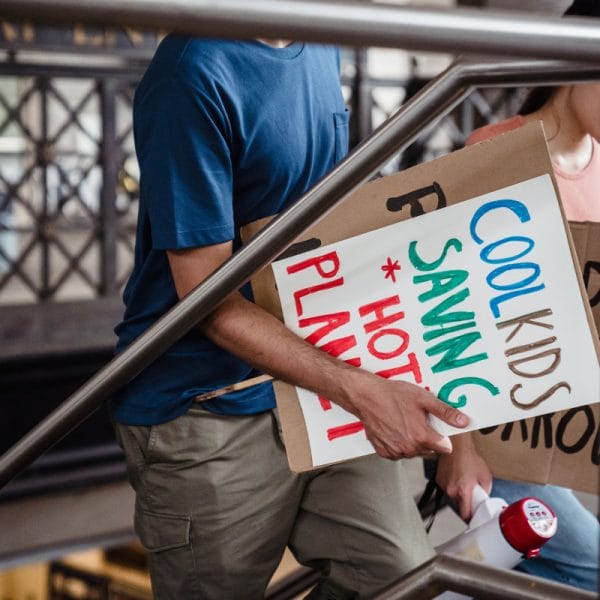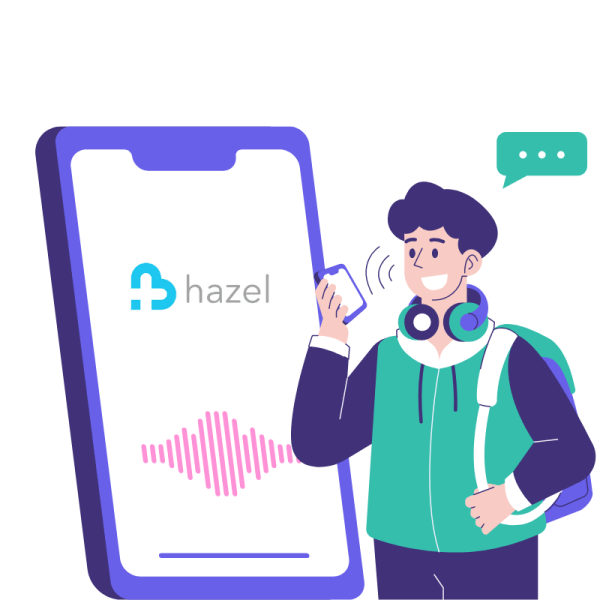Seven Positive Psychology Skills
As we built Vivibot, the content was built out in a casual, conversational format to support the needs of the community, and then we looked to the scientific community for a way to teach positive psychology skills, increase positive emotions, and decrease stress and anxiety. We worked closely with several different researchers with expertise in this field: Dr. Bradley Zebrack, whose work with cancer survivors informed how we think about the trajectory of their mental health outcomes; Dr. Sonja Lyubomirsky, a researcher whose Kindness in the Blood study examines the biological impact of doing kind things for other people; and Judith Moskowitz, Ph.D., who’s been instrumental in pulling together a health adversity intervention that combines seven specific positive psychology skills that we feature in the chatbot:
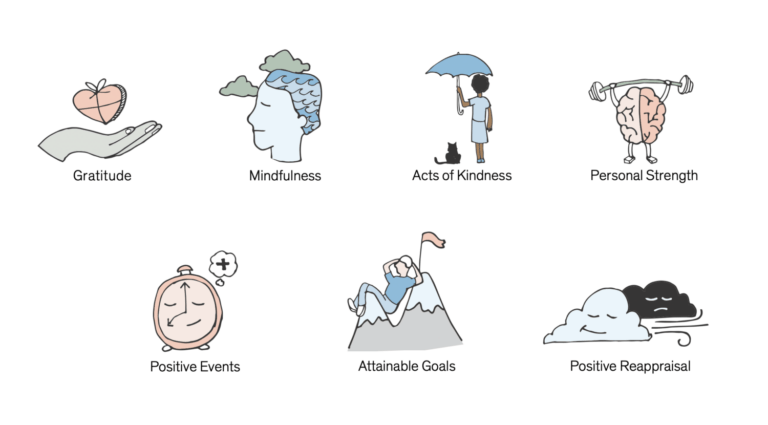
Noticing and Savoring Positive Events. It’s important to recognize and acknowledge positive events that happen each day. Even small events can have a positive impact on mood and the ability to handle stress.
Practicing Gratitude. Gratitude is another way to savor a positive event. Think about things that you’re genuinely grateful for and not things that you think you should be grateful for.
Positive Reappraisal. This skill focuses on acknowledging that we can control how we think and feel about a situation and can reorient our thinking to see the positive side of things.
Random Acts of Kindness. Doing kind things for others can improve your physical health. Even small acts of kindness, such as “paying it forward” can increase your positive emotion.
Mindfulness. Mindfulness is a particular way of paying attention, on purpose, in the present moment, with a non-judgmental and accepting attitude. Mindfulness can make bad things seem less overwhelming and allows you to put more energy into dealing with things rather than worrying about them.
Attainable Goals. Setting and achieving goals make us feel good, but short-term, modest goals are the ones that are likely to help us experience positive emotion on a daily basis.
Personal Strengths. Everyone has a unique set of strengths, talents, skills and positive qualities. Recognizing your own strengths can help you better cope with stressful things in your life.
Vivibot’s Got GRYT
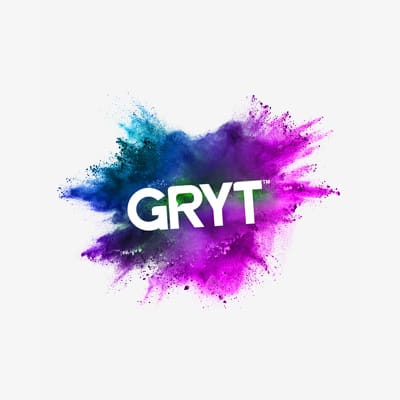 In order to scale Vivibot to as many adolescents and young adults dealing with cancer as possible, we looked for a partner who could help us achieve maximum impact.
In order to scale Vivibot to as many adolescents and young adults dealing with cancer as possible, we looked for a partner who could help us achieve maximum impact.
In 2019, Hopelab partnered with GRYT Health, a social platform for those affected by cancer to connect with others with similar experiences.
The social community was founded by cancer survivors and caregivers to create a more human approach to helping people with cancer live on their own terms.
Chat now!
Case Studies and Learnings
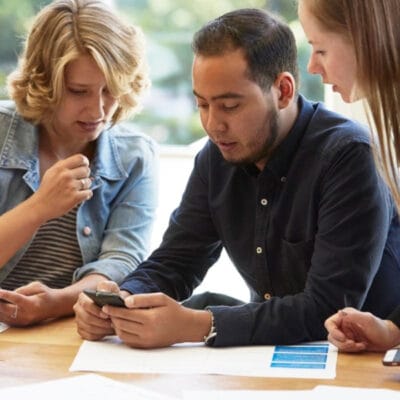
The Co-Creation of Vivibot
Curious to learn more about the co-creation of Vivibot?
Check out the case study here.
Lessons From Writing for a Mental Health Chatbot
Surviving cancer is an experience chock full of “supposed tos.” After treatment, if doctors tell you that you have no evidence of disease, you’re supposed to feel a great sense of relief and get back to your normal life. If you’re burdened with chronic cancer, you’re supposed to keep living as best as you can for as long as you can as if everything were normal. But once you’ve had cancer, you know the old normal is gone. And your new normal can be unsettling and unfamiliar.
Read more here.
Creating Engaging Content For Young People Living Life After Cancer
The Journey to—and through—Cancer Survivorship
Navigating all the emotions of surviving cancer is different for everyone. Over the course of developing Vivibot, we learned about the survivorship experiences of the teens and young adults who helped us co-create it. Through mapping out their individual journeys, we identified shared opportunities to better support young people following a cancer diagnosis, and improve the quality of their care and life.
Cancer is messy, but that doesn’t mean that messy things can’t be beautiful in their own way. While the technology we created is an important asset in helping young people thrive after diagnosis, it’s not the only thing that’s helpful. The following are a collection of assets that came out of the creation of Vivibot – videos, blogs, a set of guidelines for designing for young cancer survivors, and conversation starters we’re calling Cancer Cards. Our hope is that this collection helps create a mind shift among researchers, designers, other AYA survivors and patients, nurses, doctors, social workers, family members, caregivers, and advocacy orgs.
This is a journey. We’re all in it together.
The Cancer Cards
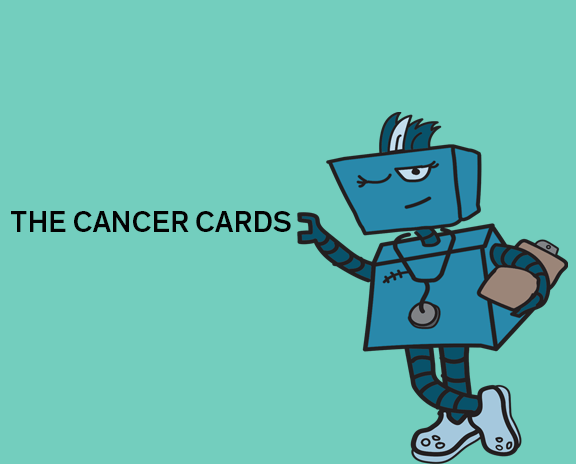
Based on the common needs of this population, we created Cancer Cards — a set of conversation starter cards that could be used to build awareness, empathy, and action for AYA cancer patients and survivors, their families, and their provider teams.
Download the cards (they’re printable)!
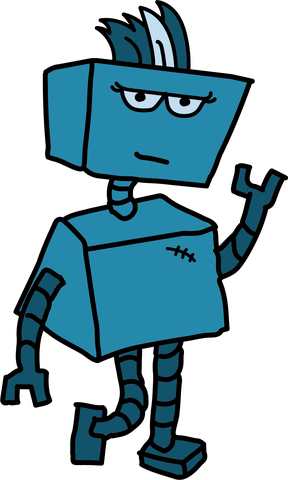 In 2016 we began exploring how we could build a technology that would help adolescent and young adult (AYA) cancer survivors navigate life after a cancer diagnosis. What evolved out of several co-creation sessions with affected young people, survivors, caregivers, providers, advocacy organizations, and positive psychology experts was Vivibot, a chatbot designed to increase resilience and decrease distress in young adult cancer survivors.
In 2016 we began exploring how we could build a technology that would help adolescent and young adult (AYA) cancer survivors navigate life after a cancer diagnosis. What evolved out of several co-creation sessions with affected young people, survivors, caregivers, providers, advocacy organizations, and positive psychology experts was Vivibot, a chatbot designed to increase resilience and decrease distress in young adult cancer survivors.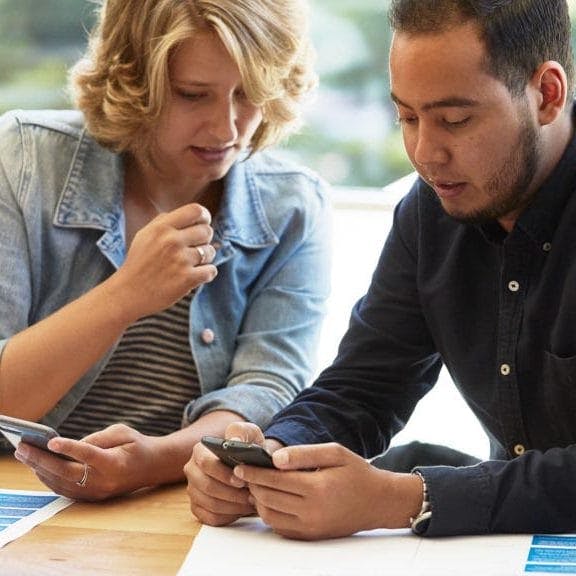
 Support, without the judgment
Support, without the judgment 
 In order to scale Vivibot to as many adolescents and young adults dealing with cancer as possible, we looked for a partner who could help us achieve maximum impact.
In order to scale Vivibot to as many adolescents and young adults dealing with cancer as possible, we looked for a partner who could help us achieve maximum impact.

